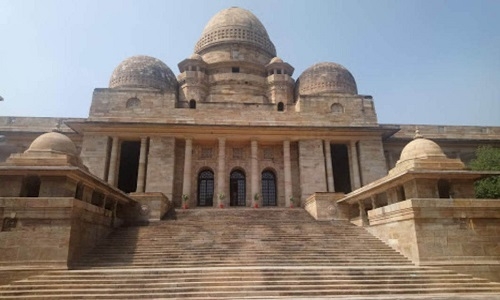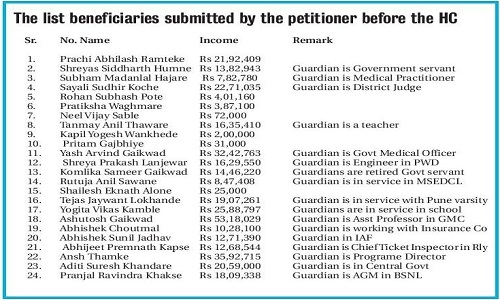Foreign Scholarships: High Court strikes down income criteria
| Date :09-May-2024 |

By Dheeraj Fartode
In a landmark decision, the Nagpur Bench of the Bombay High Court has struck down Clause D(2) of the Government Resolution dated June 27, 2017, pertaining to the ‘Utpanna Maryada’ (Income Limit) for foreign scholarships. The ruling came in response to a writ petition filed by Mayur Sanghrakshit Patil, a 28-year-old student from Nagpur, addressing the inequalities in scholarship distribution based on income thresholds.
Patil, belonging to the Scheduled Caste category, contested the clause on grounds of unfairness, highlighting its adverse impact on economically disadvantaged students.
Patil has been selected in Duke University (USA), but due to weak economic background and denial of education loan by banks to him, he has been deprived of his right to education.
Thus, the benefit of the said scheme is availed by the students who are economically stable and can themselves sustain the education abroad.
His annual family income, standing at Rs 2,78,000, placed him within the lower-income bracket.
The petitioner has filed information regarding students and the income of their guardians. The court noted that the information in the table (on the right), in fact, portrays a very dismal picture, since students whose guardians have substantial income and who are well-placed in life also are indicated to have been granted the benefit of the scholarship, which results in defeating the very purpose of the scheme — to grant scholarships to persons who could not afford higher education in Foreign Countries.
The court’s scrutiny revealed the discrepancy caused by Clause D(2), which exempted students admitted to the top 100 QS World Ranking institutions from income criteria.
This exemption led to financially stable students availing benefits intended for economically deprived candidates, thus distorting the scheme’s purpose.

Additionally, the court noted the Government’s inconsistent stance on income criteria, with revisions being made due to factors such as COVID-19. Despite discussions proposing a revision to a maximum family income of Rs 8 lakh, no formal amendment was enacted, leaving the 2017 resolution intact.
The verdict stressed the necessity of preserving the scholarship’s original intent, aimed at supporting backward caste students in accessing higher education.
By nullifying Clause D(2), the court aims to rectify the
imbalance in scholarship
distribution and uphold fairness in access to educational opportunities.
The division bench of Justice Avinash Gharote and Justice M S Jawalkar directed authorities to reassess Patil’s scholarship application within two weeks, considering the implications of the ruling.
Adv P R Agrawal represented the petitioner while AGP
N R Patil appeared for the respondents.